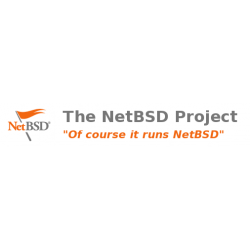NetBSD Unix
Reward Points: 0
Availability: In Stock
NetBSD is a freely redistributable, open source version of the Unix-derivative BSD computer operating system. It was the second open source BSD variant to be formally released, after 386BSD, and continues to be actively developed. Noted for its portability and quality of design and implementation, it is often used in embedded systems and as a starting point for the porting of other operating systems to new computer architectures.
Features :
- UNIX systems utilize a centralized operating system kernel which manages system and process activities.
- All non-Kernel software is organized into separate, kernel-managed processes.
- UNIX systems are preemptively multitasking: multiple processes can run at the same time, or within small time slices and nearly at the same time, and any process can be interrupted and moved out of execution by the kernel. This is known as thread management.
- Files are stored on disk in a hierarchical file system, with a single top location throughout the system (root, or "/"), with both files and directories, subdirectories, sub-subdirectories, and so on below it.
-
With few exceptions, all devices and some types of communications between processes are managed and visible as files or pseudo-files within the file system hierarchy. This is known as everything's a file.
General Description :
There are a number of Unix-like operating systems under active development, descended from the Berkeley Software Distribution (BSD) series of UNIX variants. Currently, there are four major BSD operating systems, and an increasing number of other OSs derived from these, that add or remove certain features but generally remain compatible with their originating OS — and so are not really forks of them. This is a list of those that have been active in the last couple of years, and their respective websites.
Write a review
Your Name:Your Review: Note: HTML is not translated!
Rating: Bad Good
Enter the code in the box below:


